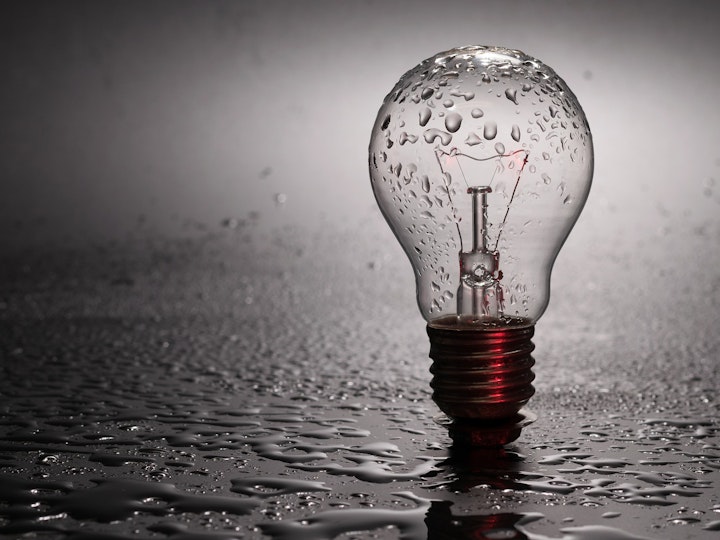The Future of Energy: Are political parties thinking far enough ahead?
Energy bills represent one of the top costs for businesses and households, so it’s no surprise the major parties are making pledges in their manifestos. The Conservative party wants an independent review of the cost of energy and Labour want to transition to publicly owned energy firms; but are they thinking far enough ahead?

Energy bills represent one of the top costs for businesses and households, so it’s no surprise the major parties are making pledges in their manifestos. The Conservative party wants an independent review of the cost of energy and Labour want to transition to publicly owned energy firms; but are they thinking far enough ahead?
The game-changer
The UK has a continued dependence on imported fuel from the politically unstable Middle East and it is more important than ever to understand the impact this has on our balance of payments. Whichever political party is in power, a real challenge for society is going to be the long-term one of the energy trilemma: balancing 1) cost to consumers, 2) security of supply and 3) global warming considerations.
Are we in the middle of a ‘game-changer’ without really realising it? I don’t mean the shift to renewables, which has been on-going for many years, but instead a more fundamental change. We’re facing the rise of an energy market driven by ‘demand management’, data crunching, genuinely economic pricing for renewables no longer subsidised or given privileged and under-priced access to the grid, a shift to a hydrogen based economy, the use of new ‘green’ passively safe small modular reactors (SMRs) and – of course – electric cars like Tesla.
Going off grid
Airlines are masters at demand management. They move prices all the time to maximise revenue by smoothing out demand based on time of day, day of the week and over the seasons to minimise capacity costs. The power market is far behind airlines in terms of cost reduction. The Conservatives want to offer everyone a ‘smart’ meter for electricity and gas by 2020, but the meters being installed today are actually more ‘dumb’ than smart.
We are moving to a new world where many homes and businesses will be essentially ‘off-grid’ a lot of the time producing and storing their own power and only demanding grid power occasionally. Such access is very high cost to provide. We are going to need ‘super-smart’ meters using artificial intelligence (AI) which will have our behavioural characteristics built in and understand our personal trade-offs in the energy trilemma. By the time we face this trade-off, however, it will not be the traditional trilemma but a contest between having power available to us continuously as we do now (energy security at the household level), accepting the very high cost of that solution which requires only occasional grid access or shifting to autarky and becoming entirely self-sufficient.
Solar or hydrogen?
The next trilemma arises when we want to travel from our homes – petrol, diesel or electric car? But it won’t be long before it is not that choice but simply a choice of which electric car and whether to purchase or rent or use an app to call an on-demand/ self-driving taxi. But that’s going to be the easy choice for households. The hard choice is going to be at the national level. Are our electric cars going to be powered by electricity, stored in a battery and manufactured at the micro-scale by our own solar panels? When we run out of power on a journey, charging points across the country will be available but at high cost and will be time consuming. Or will most cars use hydrogen, to manufacture electricity in a fuel cell as we travel.
The key difference between batteries for electricity storage and hydrogen for electricity storage is that battery cars still have a short driving range and substantially long battery charging time (up to half an hour). By contrast, fuel cell cars demand almost no change in customer experience because they can be charged in less than 5 minutes and be driven for more than 300 miles on one charge. Traditional fuel stations can also be adapted to hydrogen in some ways more easily than adapting to electric charging which would require huge adaptation to the national grid to enable a number cars to have fast recharging all at the same time without ‘blowing the mains’ .
The future’s hydrogen
Many are betting on the hydrogen fuel cell as its cost falls – something that is now happening. Hydrogen production cost can also be reduced by using small, high temperature modular nuclear reactors rather than using carbon emitting natural gas as a starting point as at present. But we also need to eliminate the use of natural gas from our domestic heating and cooking by replacing it with hydrogen which the city of Leeds is currently researching.
So whatever the outcome is of the UK election, the party in power needs to think further ahead to plan for the future of the energy industry. The hydrogen economy may be coming at us fast and we need to be prepared.
Article by Professor Brian Scott-Quinn
| Published | 5 June 2017 |
|---|


